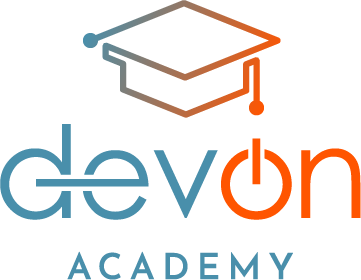Refactoring Legacy Code
Development teams constantly make decisions between building software right and building software fast. Even though building it right (quality) is always paramount, at times development teams compromise quality to gain speed (build fast). Rushing delivery of a feature or user story without ever going back to refactor the code to express your learnings leads to technical debt. In layman terms, it is like cutting corners to meet deadlines.
| 15+ Years Experience Learn from industry leaders |
Tailor-made Learning Journeys Become the expert you want to be! |
| Hands-On Approach Immediately start applying your craft |
Rated 8,0 Highly reviewed by your peers |

- Software Developer
- Dutch
- English
Short summary
Some teams postpone improvement work. There is an increasing cost of delay due to technical debt. Moreover, postponing improvement to a later point in time is a sign of waterfall mindset. Some teams plan for a refactoring sprint or stabilization sprint or any other name they want to put but all of them boil down to doing major changes without any business value. This course will help attendees understand these aspects and gives them hands on experience with refactoring.
Our Trainer

Phani Bhushan
Technical Consultant & trainer
Phani works as a Technical Consultant and a Scrum.org/DevOps Institute trainer at DevOn, helping organizations to make the transition to the Agile way of working.

Course objectives
- Understanding that avoiding/reducing technical debt is not a choice for the team but it’s a responsibility they have every sprint.
- Preferring not to make any big bang refactoring to reduce technical debt. More often they will not result the desired outcome as they involve a higher risk of dealing with uncertainty.
- Understanding and experiencing how to continuously refactor even with complicated legacy code.

Course topics
• The importance of refactoring:
• The definition of refactoring
• Lehman’s law of increasing complexity
• Technical debt
• Dealing effectively with legacy code
• The definition of legacy code.
• Working with feedbacks
• Legacy code dilemma
• Identify change points
• Find tests points
• Make the code testable (break dependencies)
• Write the right tests
• Hands-on exercise
Target audience
- This course is intended for software developers and teams who have struggled or are struggling with legacy code. Basic knowledge of writing unit tests is required.
Top reviews of our trainings
-
Nice variety of subjects
 Masterclass Leading a DevOps Transformation
Masterclass Leading a DevOps Transformation
-
Good explanation, easy talker
 Kubernetes & Continuous Delivery
Kubernetes & Continuous Delivery
-
The discussions were amazing!
 DevOps Foundation
DevOps Foundation
-
Good concrete examples!
 Quality Code using SOLID principles
Quality Code using SOLID principles
-
The content has a good balance between theory and exercises. Among others, I’ve learned to put AI more in perspective. The trainer communicates smoothly with the attendees and pays attention to the pace of the training.
AI for Product Owners & Product Managers
-
Its a combo of high over and technical
 Masterclass Dave Farley
Masterclass Dave Farley
Payment methods
![]()
![]()
![]()
![]()
Need help?
Please contact us via email or call us by the number stated below. We are more than happy to help you.
+31 (0)15 - 241 19 00
academy@devon.nl
What’s next for me?
Take a look at what trainings you should follow next to become a true expert in your field.
FAQ
After your registration has been confirmed, you are still able to change the date up to 20 days before the first day of the training. You are able to do this once. Please send your request to academy@devon.nl or call +31(0)15-24 11 900 for further assistance.
Two weeks before each training, we will check if we have enough participants for the training course to be valuable and continue. If this is not the case, we will inform you by e-mail, with options for a new date and location. After this notification, you will have the right to cancel or change your registration within 5 working days.
On the website you can choose to pay via iDeal, creditcard or by invoice with a payment period of 30 days.
Most of our courses are available in both English and Dutch. We have a selection of training courses which are only available in English, which will be on that training page. Our rule of thumb for courses in the Netherlands is – the course is in English unless everybody speaks Dutch, then the course is in Dutch. If you want to be sure you are in a Dutch course, please get in touch with academy@devon.nl in case the information on a specific date is not available on the course page.
Unless mentioned otherwise, the course fee includes the cost of training material, exam cost, the use of the location, catering and parking.
When you click on the orange arrow, the menu will unfold further. More locations and dates might appear.
The costs that apply to our programs initiated from the Netherlands are exempt from sales tax as per Article 11-1-o of the 1968 Sales Tax Act. In other locations/countries, the prices shown are excluding VAT, which will be added.
Is the ‘register’ headline visible? This means you can register and attend the training. Does the headline say ‘full’? Give us a call and we’ll try and help you out!
All course material for the open registrations is in English.
If you are doing the PSD (Scrum.org) or one of the certified DevOps Institute trainings, you will receive your exam code on the final day of the training.
We have a payment term of up to 30 days



